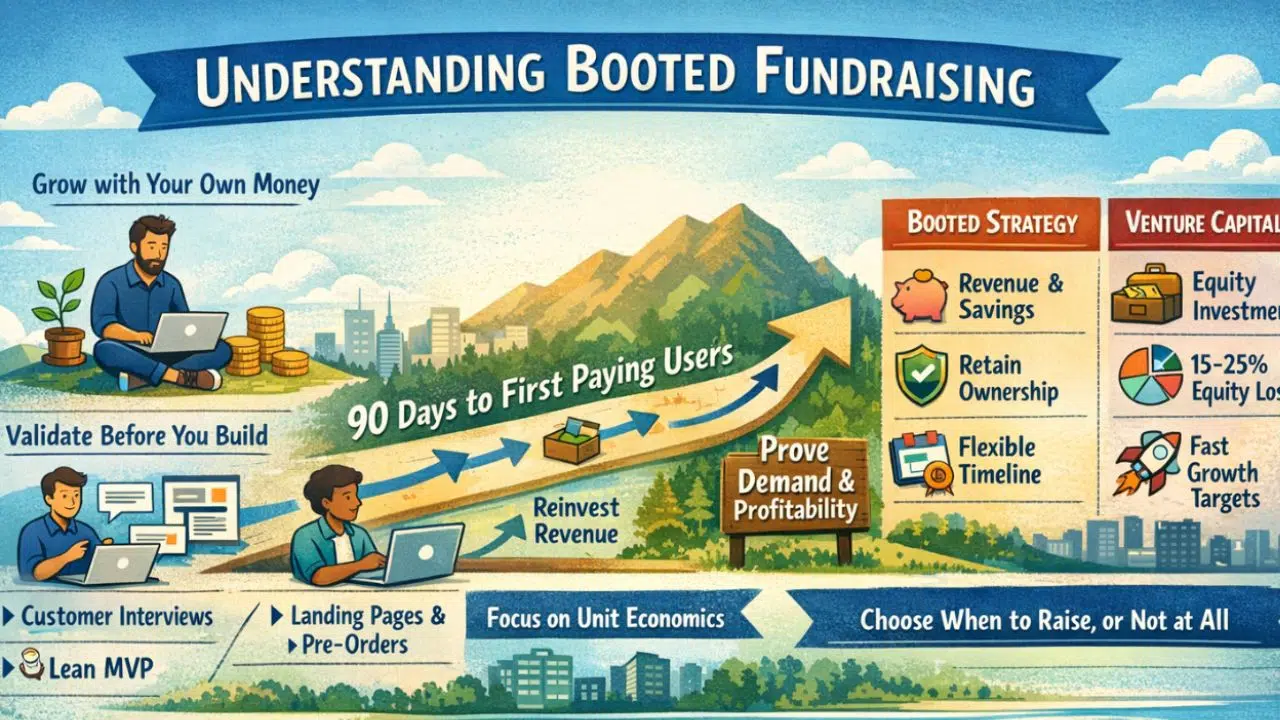A 2022 survey with 500 respondents revealed that 16 percent of startup owners believed their businesses failed due to a lack of a business model. Other reasons were poor timing, legal challenges, a lack of investors, and team disharmony.
The absence of a business structure may have contributed to these issues. You generally become a sole trader when you don’t choose a structure. However, not understanding the roles and obligations of being a sole trader can impact your startup negatively. Failing to register your business can also lead to liability and legal repercussions.
For these reasons, having a business structure provides operational benefits and legal protection. But with many options, which is most suitable for your startup?
Why choose a business structure?
A business structure is your company’s legal representation, recognized in your state’s jurisdiction. It establishes your ownership and profit distribution.
The structure you choose affects the following factors:
- Daily operations
- Tax expenses
- The volume of required paperwork
- Risks and liabilities
- Your ability to raise capital
Choosing the appropriate business structure is crucial before registering your startup. Without thorough planning, changing your structure can be costly and time-consuming.
Here are the other reasons why you should choose a business structure:
To legitimize your business
Registering is required in establishing your startup, and business structure is significant in this step. It legitimizes your business and ensures your company complies with the state’s regulations.
When your company is registered and has a structure, suppliers, potential investors, clients, and customers perceive your business as credible. It lays the groundwork for stability, legal compliance, and scalability.
To protect your personal assets
Managing your startup comes with risks, and a business structure helps protect your assets in case of liabilities.
This protection is called “limited liability.” It separates your finances from your business’s liabilities, which means that the financial obligations are the responsibility of the business entity, not the owners.
For instance, if your business faces a lawsuit, your savings, properties, and home won’t be affected by the claims of litigants and creditors. These assets are not directly tied to your business, so you can rest assured of your financial security.
To establish your organizational structure
Businesses thrive when all the needs are met, from executives to employees. For this reason, a business structure enables you to establish a flexible and agile organizational structure.
Your organizational structure is the framework that defines your management’s hierarchy and governance. It specifies your role as the owner and the employees’ responsibilities as team members. This structure defines the lines of authority and accountability, ensuring everyone understands how their roles interact.
Moreover, a well-defined organizational structure helps ensure your business’s adaptability and scalability. This framework evolves as the business grows to meet the demand and accommodate new roles. It also lets you set growth goals, outline strategies and resource allocation, and identify potential risks.
Types of Business Structures
Each business structure has its guidelines and restrictions. While you may change your setup in the future, there could be repercussions, such as tax consequences and unintentional dissolution.
Here are the business structures to consider before registering your startup.
Sole Proprietorship
A sole proprietorship is the most straightforward structure to form. If you don’t register any structure, your startup automatically becomes a sole proprietorship.
Registering as a sole proprietorship gives you complete control of your business. However, it doesn’t produce a limited liability that separates your business entity. You can be liable for debts and other legal obligations directly affecting your assets. Raising capital can also be challenging, as you can’t sell stocks, and banks are often reluctant to lend to sole traders.
You can still choose a business name as a sole proprietorship. This structure is ideal for low-risk entrepreneurs who want to test the waters before establishing a formal company.
Partnership
A partnership is the most common structure for multiple business owners. It has two types: limited partnership (LP) and limited liability partnership (LLP).
When registering as an LP, one owner is a general partner with unlimited liability, while the co-owners have limited liability. Unlimited liability means the general partner assumes all the company’s liabilities and should pay self-employment taxes. In this structure, individuals also add profits to their tax returns.
LLP is similar to LP, but every owner has limited liability. This structure protects each partner from liabilities against the partnership. You won’t be responsible for the actions of other partners, and vice versa.

Limited Liability Company (LLC)
A Limited Liability Company structure, or LLC, combines the benefits of partnerships and corporations.
An LLC structure can shield your assets from liabilities, bankruptcy, and lawsuits. Your profits and losses can pass through personal income without corporate taxes. However, LLC members should pay self-employment taxes.
LLCs may have limited life in some states. When a member joins or leaves, these states may require you to dissolve or reform your LLC with new members—unless there’s an existing agreement about buying, selling, or transferring ownership. This is why it’s crucial to, for example, understand the specific requirements to form an LLC in Arizona if you’re an Arizona-based company.
Corporation
Corporations are business structures that give your company a separate legal entity. They are generally complex and costly to form and have more tax requirements and regulations. Most corporations hire lawyers to manage the registration process and ensure they comply with state laws.
C corporation (C corp)
Corporations are sometimes called C corporations. When you register as a C corp, you’ll pay income tax on your profits. Your corporate profits may even be taxed twice—when you pay dividends to shareholders, they’ll have to pay income tax, too. This double taxation means the company and individuals are obliged to pay taxes.
This structure is independent of its shareholders. Your C corp can continue operating even if one shareholder leaves or sells shares. You can also raise capital through stock selling, which helps attract employees.
S corporation (S corp)
An S corporation, or S corp, is designed to avoid C corporation’s double taxation. This structure allows the corporate profits and some losses to pass through the owners’ income tax returns, preventing the corporation from being taxed.
Taxing regulations for S corps vary for each state. Most states follow the federal government’s tax laws, while some tax S corps who earn above a specified limit. Others don’t recognize S corps and treat them as C corps.
S corps operate similarly to C corps if one shareholder leaves or sells shares. However, the registration process can still be as complex as C corps.
B corporation (B corp)
Benefit corporations, or B corps, are for-profit companies. Most states recognize this type of corporation. While their taxation isn’t different from C corps, the purpose, transparency, and accountability are different.
B corps aim to earn profits through valuable missions. When you register as a B corp, you should earn financial profits by contributing to the common good. Some states require you to submit annual reports showcasing your public benefit projects.
You may need certifications from B-corp certification services in some states. But if your state legally recognizes B corps, you don’t need certification.
Close corporation
Close corporations are similar to B corps but more relaxed in managing operations. They are ideal for small companies because they don’t necessarily follow the traditional formalities of larger corporations.
Generally, state rules prohibit close corporations from selling their shares to the public, but the specifics may vary. Moreover, you can run this structure with a small group of shareholders without a board of directors.
Non-profit corporation
Non-profit corporations organize education, charity, literary, scientific, or religious work for the common good. As a non-profit corporation owner, you can be exempt from taxes because your operations benefit the public.
However, you’ll follow the organizational rules of C corporations. You should also remember the special rules for profits. For example, you can’t distribute profits to your members or political campaigns.
You should file with the Internal Revenue Service (IRS) for tax exemption, a separate process from registering with your state.
Cooperative
Cooperatives are organizations run for the benefit of those using their services. As a cooperative owner, you’ll distribute the profits among the members. An elected board of directors typically runs this structure, while regular members vote and make decisions about the organization’s operations.
Pick the Right Structure for Your Startup
Choosing a business structure requires thorough planning. You should assess each structure to determine which fits your resources and company size. At the same time, you should ensure it complies with your state’s regulations. Consult a business counselor, lawyer, and accountant for expert advice to make informed decisions.








































